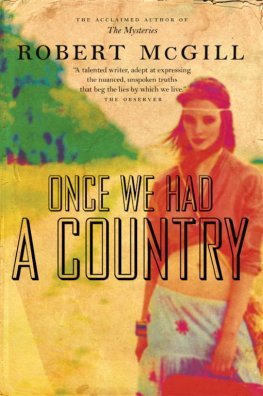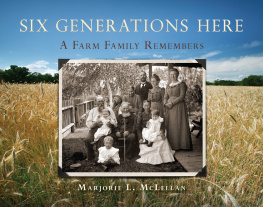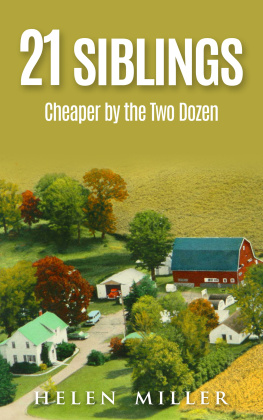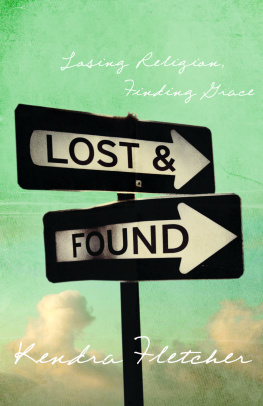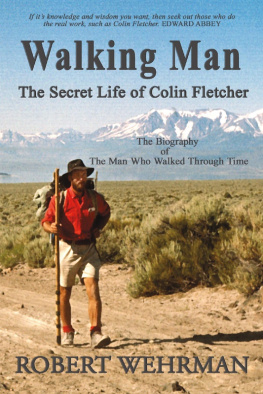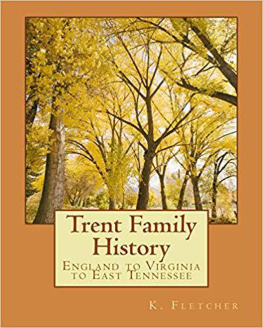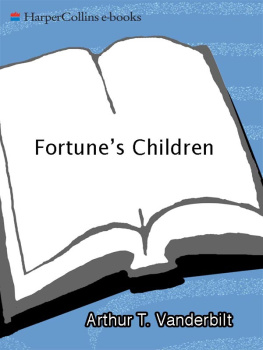Our Family Dreams
The Fletchers Adventures in Nineteenth-Century America
Daniel Blake Smith

St. Martins Press
New York
Thank you for buying this St. Martins Press ebook.
To receive special offers, bonus content, and info on new releases and other great reads, sign up for our newsletters.

Or visit us online at us.macmillan.com/newslettersignup
For email updates on the author, click here.
The author and publisher have provided this e-book to you for your personal use only. You may not make this e-book publicly available in any way. Copyright infringement is against the law. If you believe the copy of this e-book you are reading infringes on the authors copyright, please notify the publisher at: us.macmillanusa.com/piracy .
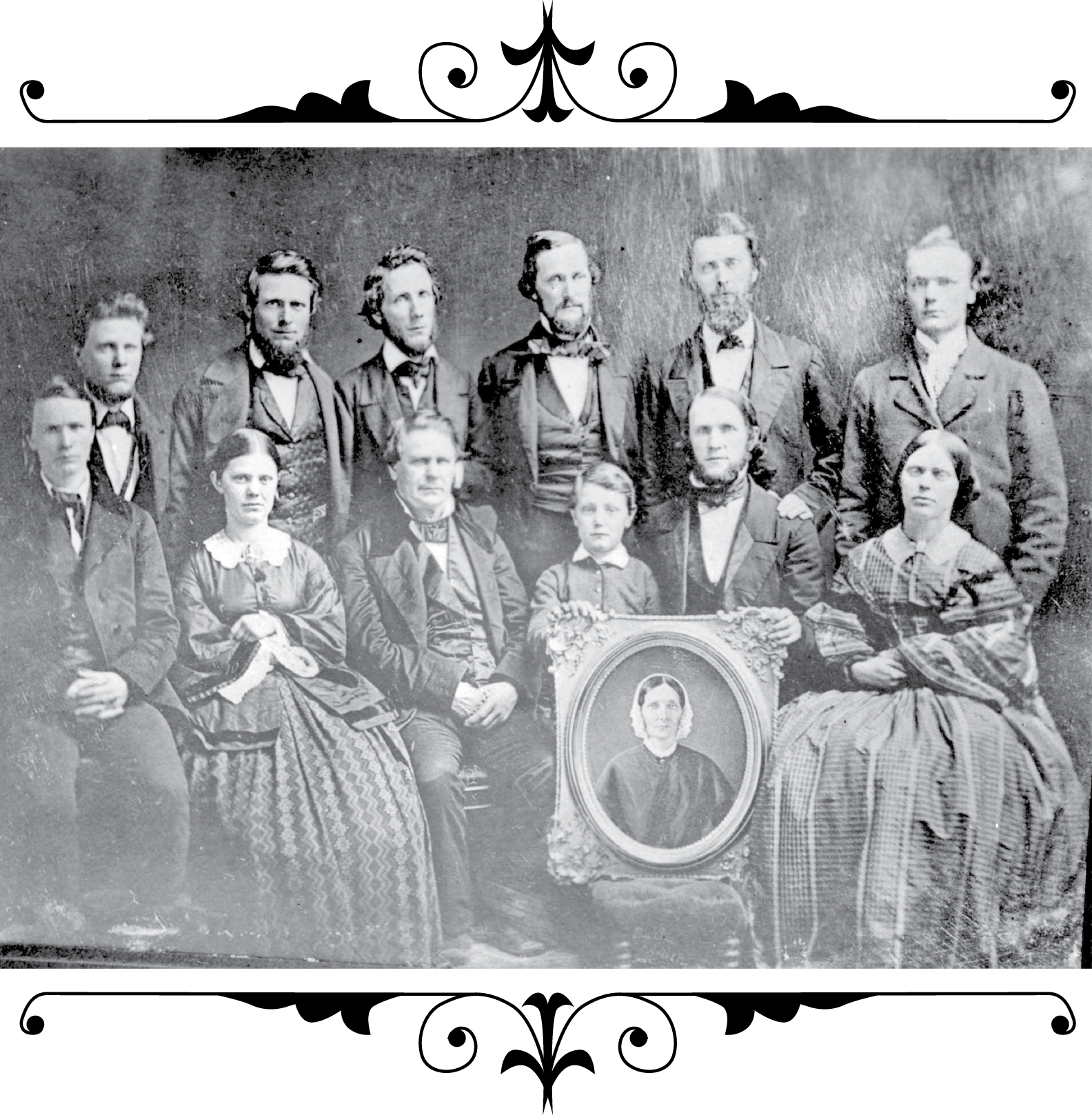
To my parents
Courtesy of the Indiana Historical Society.
19__ Sweet Briar College. All rights reserved. Image used with permission of Sweet Briar College.
Courtesy of the Indiana Historical Society.
Courtesy of the Indiana Historical Society.
19__ Sweet Briar College. All rights reserved. Image used with permission of Sweet Briar College.
Courtesy of the Indiana Historical Society.
19__ Sweet Briar College. All rights reserved. Image used with permission of Sweet Briar College.
Courtesy of the Indiana Historical Society.
Courtesy of the Indiana Historical Society.
From a daguerreotype in Portraits and Memoirs of Eminent Americans, by John Livingston (this book and all its contents are in the public domain).
Courtesy of the Indiana Historical Society.
Courtesy of the Indiana Historical Society.
Courtesy of the Indiana Historical Society.
19__ Sweet Briar College. All rights reserved. Image used with permission of Sweet Briar College.
19__ Sweet Briar College. All rights reserved. Image used with permission of Sweet Briar College.
19__ Sweet Briar College. All rights reserved. Image used with permission of Sweet Briar College.
19__ Sweet Briar College. All rights reserved. Image used with permission of Sweet Briar College.
On a bad cloudy day over the Christmas holidays in 1858, Calvin Fletcher, a sixty-year-old self-made lawyer, banker, and farmer in Indianapolis, welcomed his eleven children home for a family reunion. To commemorate the event, he gathered everyone at Orrs Daguerreotype in Indianapolis to take a family picture. As the patriarch of one of the citys wealthiest and most prominent families, Calvin attracted attention. The editors of several newspapers stopped by and com plimented him on his large and mostly successful family. Such a family is rarely known anywhere, the editor of the Daily Journal observed. Of eleven children none have died, all are well educated, well trained, honest, industrious, and well esteemed. Some of them are filling posts of high honor and great responsibility, not in politics but in walks more honorable. Not one has fallen into dissipation, or below the high level on which their fathers character has placed them.
While he was suitably flattered, Calvin was unwilling to take much comfort in such praise. As the ever-careful, self-appraising father saw it, no one can justly & properly be pronounced good or great till a final winding up of mortal life.
The picture itself showcases a well-dressed and solid, if humorless, middle-class family, noteworthy more for an apparent sense of mourning for their lost mother of four years past (seen in the framed daguerreotype at the bottom of the picture) than for any discernible joy at being together. Calvins relatively new wife of three years, Keziah, did not appear in the daguerreotype. Gathered in one small space were several troublesome Fletcher sonsone who had run off from home at precisely the age Calvin had departed his own family as a teenager; another who had struggled mightily with Calvin over management of the family farms; a sickly older son, who at one point had abandoned his studies to take off for Mexico; and Calvins eldest son, whose ongoing financial dependence prompted his father to think of him as a failure. As with most family reunions, one can only imagine the uncomfortable mixture of pride and tension that must have filled the room.
Calvin called it a truly happy day to me. It is no small blessing, no ordinary blessing, he confided in his diary, to have such a privilege as I now enjoy of assembling my children that they are all alive, none missing, that all have their faculties & none extremely dissipated or wicked in the sense the world views such matters. He took pride as well that all were to one degree or another Christians, but as he looked around the room he tellingly concluded, I know they are not without their faults & have given me great trouble, great care, great anxiety.
Calvin and his family had come a long way from the meager origins of the Fletcher family, which the patriarch, Jesse Sr., settled in rural Vermont in the years after the American Revolution. As time passed, one branch of the Fletchers, led by Jesses eldest son Elijah, a teacher-turned-plantation owner, made its way to southwestern Virginia, while another branch, led by the younger Calvin, pioneered the way west, finally ending up in Indianapolis. From the beginning, the Fletchers story opens up a remarkable window on what it meant to be an American in the early days of the nation. And because Calvin and his brother Elijah left a rich and revealing collection of family letters and diaries, we can witness the familys often-fierce struggle to define itself through an unyielding commitment to personal and educational advancement. As the visiting newspapermen doubtless observed, the Fletchers, like most of their fellow middle-class Americans, focused their minds and hearts on the relentless pursuit of respectability and success.
They were in many ways an ordinary family, but their experiences, especially those of Elijah and Calvin, provide an astonishingly candid look into the American dream as it was unfolding across the nineteenth century. The Fletcher story offers nothing less than an emotional X-ray into the heart and soul of a middle-class American family trying to survive and advance in the American nation.
Their story is our own.
The Fletcher familys American experience stretches back to the very beginning of the European presence in New England. The family descends from Robert Fletcher, who settled in Concord, Massachusetts, in 1630. Jesse Fletcher, the patriarch of our story, was among the sixth generation of Fletchers in America. That generation made its mark not as founders, but as patriots, for it was the American Revolution that shaped and gave meaning to Jesse and his family. Born to Timothy and Bridget Fletcher in 1762 in Westford, Massachusetts, a small farming and cattle-raising village about twenty miles west of Boston, Jesse was the youngest of four children. His eldest brother, Elijah, became an ordained Congregationalist minister in nearby Hopkinton, Massachusetts, in 1773. But it was his brother Josiah to whom Jesse remained most attached, especially with the outbreak of hostilities at Lexington and Concord in 1775. Josiah was among the Minutemen who answered the call at Bunker Hill. Although he was only thirteen at the time, Jesse acted as an aide to Josiah during the very battle at which blood was first spilled in the American Revolution. Josiah went on to serve as a private in the Massachusetts militia at Ticonderoga, White Plains, and Saratoga.


